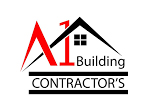Stepping into the world of residential construction management opens the door to a dynamic and rewarding career. As a residential construction manager, you oversee the entire construction process of homes, from the initial planning stages to the final touches. This role is crucial in ensuring that projects are completed on time, within budget, and to the highest quality standards. The position demands a unique blend of leadership, technical knowledge, and problem-solving skills.
In this bustling industry, a keen understanding of *project management principles* is essential. This involves coordinating with architects, engineers, and contractors to bring architectural visions to life. A successful manager must be adept at timeline management, resource allocation, and risk assessment. Furthermore, staying updated with the latest construction technologies and sustainability practices can set you apart in this competitive field.
Working in residential construction also means having a strong grasp of regulations and building codes, as these govern every aspect of the construction process. An effective manager not only complies with these standards but also anticipates potential challenges and navigates them adeptly.
If you’re considering taking the plunge into this exciting career path and want to gain a competitive edge, consider exploring opportunities such as building an accessory dwelling unit. This can provide hands-on experience and showcase your ability to manage complex projects. As you embark on this journey, you’re not just building homes; you’re constructing dreams and futures, one project at a time.
Essential Skills for Construction Managers
To thrive as a residential construction manager, developing a robust set of skills is indispensable. These skills not only enhance your ability to manage projects effectively but also equip you to lead teams and communicate with stakeholders efficiently.
Leadership is at the core of construction management. As the driving force behind a project, you must inspire and motivate your team to achieve their best. Strong leadership entails delegating tasks appropriately, resolving conflicts swiftly, and fostering a collaborative work environment.
Another critical skill is communication. Construction managers serve as the link between clients, architects, contractors, and suppliers. Clear, concise, and effective communication ensures that all parties are aligned with the project goals and progress. This includes the ability to convey complex technical details in a way that is understandable to non-experts.
Problem-solving abilities are crucial, as the construction process often encounters unexpected challenges. A successful manager is proactive, identifying potential issues before they arise and developing solutions that minimize disruption to the project timeline and budget.
The ability to manage time and resources efficiently is also essential. This involves meticulous planning and scheduling, ensuring that every phase of the project progresses smoothly. Additionally, a keen eye for detail helps in maintaining quality standards and ensuring compliance with building regulations.
Lastly, staying abreast of technological advancements in the construction industry can significantly enhance your skill set. Familiarity with construction management software, Building Information Modeling (BIM), and other digital tools can streamline project management tasks and improve outcomes.
By honing these essential skills, you will not only ensure successful project execution but also build a reputation as a competent and reliable construction manager.
Staying Updated with Industry Trends
In the fast-paced world of residential construction, staying updated with the latest industry trends is crucial for maintaining a competitive edge. With continuous advancements in technology, materials, and building techniques, a top residential construction manager must be proactive in seeking knowledge and understanding these changes.

Leave a Reply
You must be logged in to post a comment.